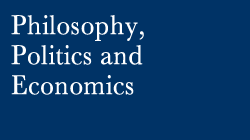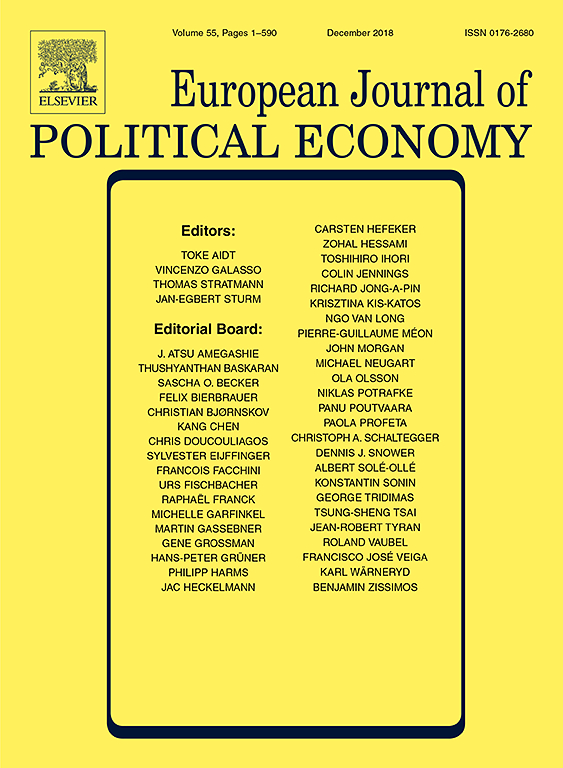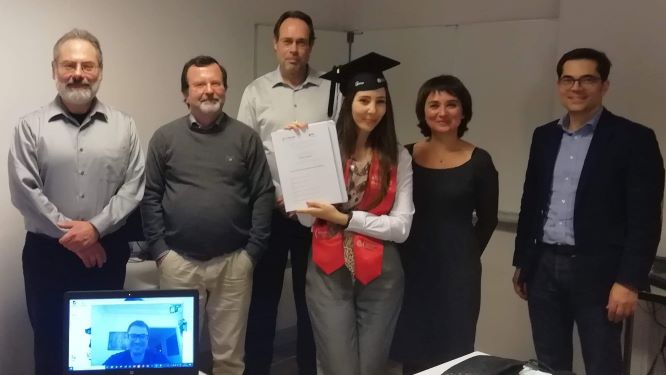Latest News
Regime security and taxation in autocracies: Who is taxed and how?
Published in the European Journal of Political Economy Authors: Marina Dodlova and Viola Lucas Abstract: We study taxation by autocratic …
What are the economic effects of terrorism?
Toute Economie Lyon Twenty years ago, the New York attacks marked a break in the history of international terrorism. For …
15th Annual Households in Conflict Network Workshop “New Methods in Empirical Conflict Research”
Christophe Muller will present the paper Minorities at Risk Organisations: Terrorism, Insurgency, State Repression, and Cycles of Violence, co-written with Pierre …
political economy of government policies and dynamics with increasing violence and radicalization
We study the types of social insecurities that might lead to higher violence and citizen mobilization. In studying the root causes of political uprisings, we go beyond inequality consider all types of grievances, including lack of democratization.
Relationship between domestic ‘every day’ violence and violence outside of the home
The MENA region has the second highest prevalence rates of intimate partner violence and the highest rates of severe physical punishment of children. We analyse as comprehensively as possible the developmental impact of different types of violence in the MENA region.
Databases
We use the Minorities at Risk Organisational Database, and the Global Terrorism Database, along other sources of information.
Sponsors and Partners
This is a four year project, 2017-2021
We have organised the `TMENA2 Launch Meeting' and the Workshop `Ethnic and Spatial Confrontations: Incomes, Networks and Terrorism'
Journal Articles : such as "What are the costs of violence?" and "Social transfers and conditionalities under different regime types."
OUR TEAM

Christophe Muller

Ahmed Yousuf

Marina Dodlova

Sultan Mehmood

Eric Strobl

Mona Said

Cyrine Hannafi

Pierre Pecher

Krisztina Kis-Katos

Mina Ayad

Anke Hoeffler

Christine Binzel

Sanjay Jain

Rami Galal
News and Publications


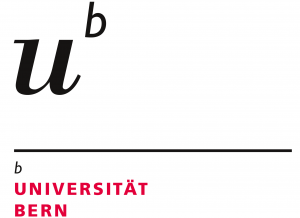

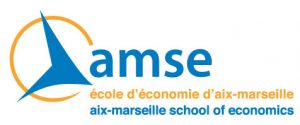




Regime security and taxation in autocracies: Who is taxed and how?
Published in the European Journal of Political Economy Authors: Marina Dodlova and Viola Lucas Abstract: We study taxation by autocratic …
What are the economic effects of terrorism?
Toute Economie Lyon Twenty years ago, the New York attacks marked a break in the history of international terrorism. For …
Assessing the impact of unexpected Instability events on Internal Migration in Egypt
Paper by Mina Sami, Dina Abdel Fattah, and Mona Said This paper aims to assess the impact that events of …
Fertility Regulation Behavior: Sequential Decisions in Tunisia
Article by Olfa Frini and Christophe Muller We revisit fertility analysis in Tunisia by focusing on a sequence of fertility …
How Do Agro-Pastoral Policies Affect the Dietary Intake of Agro-Pastoralists in Niger?
Paper by Christophe Muller and Nouréini Sayouti We investigate the causal mechanisms underlying the effect of agricultural policies directed toward …

What are the costs of violence?
Link to the article Abstract This article presents estimates of the global cost of collective and interpersonal violence for the …

Social transfers and conditionalities under different regime types
Authors: Marina Dodlova, Anna Giolbas, and Jann Lay This paper examines the implications of political factors for social policy choices. …


